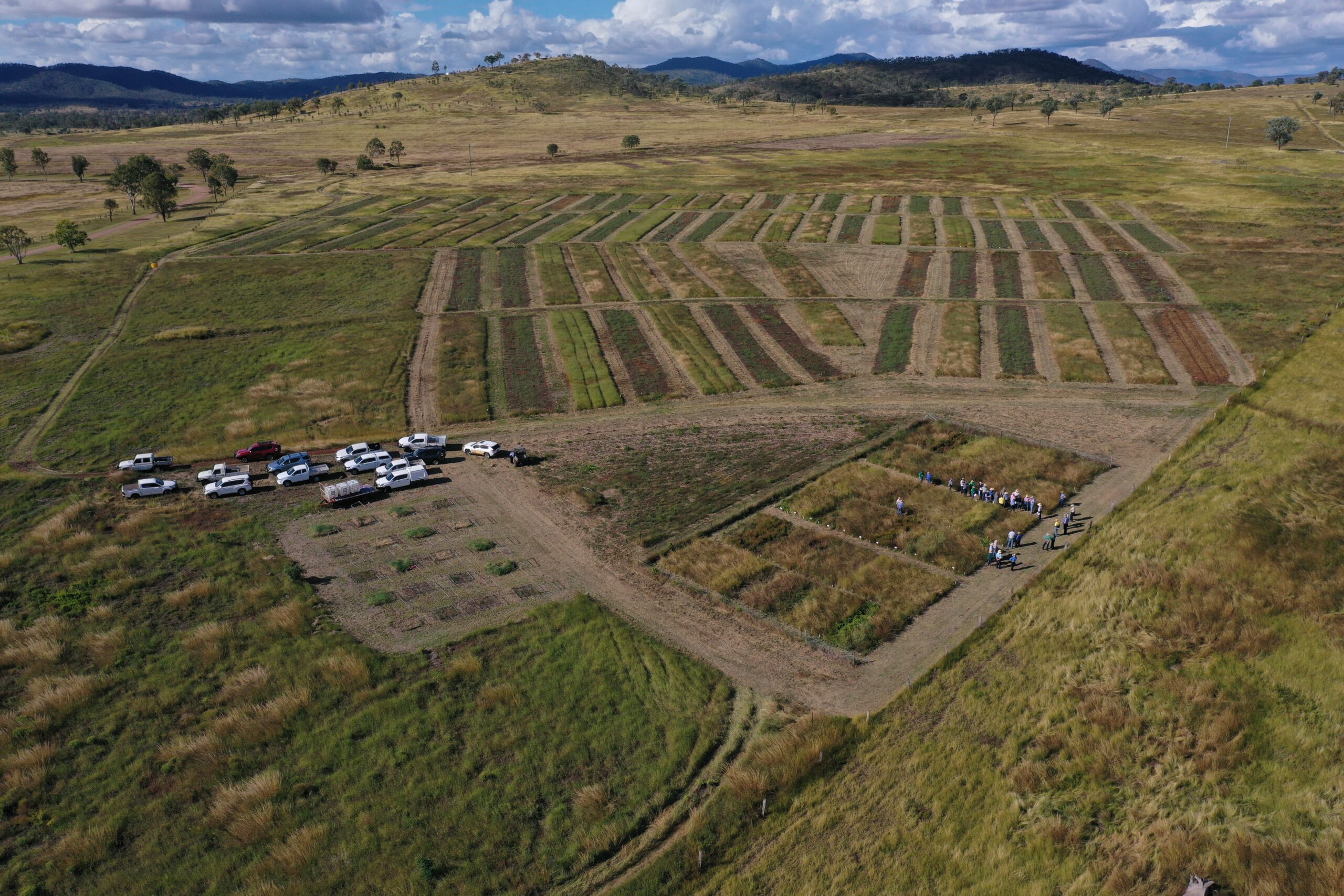Pasture dieback field day a success

Department of Agriculture and Fisheries (DAF) staff from Rockhampton and Brian Pastures Research Facility hosted a pasture dieback field day on 19 May that was attended by 32 producers and industry representatives.
The field day, held at Brian Pastures, Gayndah, provided an update on the latest results from DAF’s pasture dieback research, including mealy bug impact on pasture, identification of other potential causal factors, grass species susceptibility to dieback and success of various management strategies.
Beef Extension Officer and organiser of the field day, Kylie Hopkins said “Over the past 12 months we have run several events around Central Queensland to engage with producers who are currently dealing with pasture dieback. With co-funding from MLA, we have developed the Pasture Dieback Industry Network, which connects anyone in the beef industry who is interested to know more about the condition. We send out newsletters with research updates, useful links and information about upcoming events. The network now has more than 200 people registered. We are currently planning more events for September and November in northern and southern Queensland.”
Senior Agronomist, Stuart Buck said “We are continuing to learn more about how to effectively manage paddocks affected by dieback. Because every paddock and property are different there are no one-size fits all strategies; what is suitable for your neighbour might not suit you. The strategy chosen will depend upon the size of the area affected, if the affected areas are expanding, the stage of the disease, if machinery can access affected areas and what equipment is available etc. The best-bet option for small areas is likely to be to heavily graze the paddock to utilise the remaining feed, spell the paddock and then monitor the site for further changes. For larger areas, re-seeding the area with a suitable legume, or maybe a less susceptible grass species, can significantly speed up the process of restoring productivity.”
Attendees at the field day were able to inspect the four field trials underway at Brian Pastures and talk in detail to staff conducting the research. A paddock that had completely recovered from dieback with no intervention, was also inspected.
The Brian Pastures staff also showcased the larger body of research work DAF conducts and supports at their facility, including land condition monitoring, forage budgeting, and legume establishment trials.
The day finished off with a sunset smoko and productive discussions between producers and staff.
DAF is undertaking rigorous research to determine the cause(s) and management solutions for pasture dieback. A multidisciplinary team across Queensland are contributing to the effort, with co-funding from Meat and Livestock Australia.
Producers wanting assistance to determine the best pasture dieback management strategy for their property are encouraged to contact their local extension officer.
The latest information about pasture dieback
Pasture dieback signs and symptoms →
Pasture dieback or pasture rundown? →